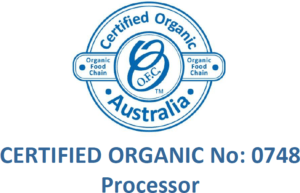Organophosphate pesticides linked to ADHD…new US study May 2011
Alarming research findings from the US could accelerate the swing to organic produce already evident in the Australian marketplace according to the Biological Farmers of Australia (BFA).
The study, released this week May 2011, has found that organophosphates – banned from use in certified organic food production – may be linked to attention-deficit/ hyperactivity disorder (ADD and ADHD) in children.
Shane Heaton, Nutritionist for the Biological Farmers of Australia, says that the findings come as no surprise. “This adds to evidence already available concerning the harmful effects of pesticides on the brain. Previous studies have shown that pesticide exposure increases the risks of Parkinson’s & Alzheimer’s disease in older people.”
“In 1998 American anthropologist Elizabeth Guillette showed that children exposed to pesticides are at great risk of impaired cognitive development, and now this study links pesticides to ADHD.” The research was conducted by several prestigious American & Canadian universities & was based on data for 1139 children, aged 8 to 15 yrs, from the National Health & Nutrition Examination Survey(2000-04). Children were tested for levels of organophosphate pesticide metabolites in their urine.
Mr Heaton went on to say that confirmed links between many common food additives have already prompted many parents to choose organic food for their children, and here’s yet another compelling reason to do so. “You can have good food, or cheap food, but not good, cheap food. Organic food isn’t a luxury, it is how food is meant to be,” he said. Researchers also found that 93.8 per cent of those who took part in the study had one or more detectable metabolites in their urine and that every ten-fold increase in metabolites was linked to a 55 per cent to 72 per cent increased likelihood of ADHD. “While more research is needed to establish whether a causal link exits, many consumers are taking the precautionary principal, and a positive approach, and opting for certified organic produce,” Mr Heaton said. BFA May 2011
BFA Organic School Gardens Program: lanting the seeds for healthy, sustainable living
Schools Australia-wide have registered for the BFA Organic School Gardens program, the only such Australian program developed in accordance with organic standards. Designed by acclaimed certified organic farmer and author Lyn Bagnall
(Lyn’s “Easy Organic Gardening and Moon Planting” is now in its 2nd edition), the free program provides written materials for lessons in the classroom & the garden.
The program is designed for students 8 – 12 years old and Lyn says that children have much to gain from organic gardening.
“In managing their own gardens organically, children are learning how to get excellent results using sustainable cultivation, allowing them to keep their gardens virtually pest-free and more tolerant of climate extremes,” she says.
“The whole process is good for children’s confidence. Children receive a deep sense of achievement from growing their own healthy, delicious food.”
Lyn will continue to roll out additional material for the Organic School Garden’s website. Recently, there has been the addition of information and activities focussing on organic garden management, improving soil health and saving water, and the last term of the year will draw the participants into the exciting realms of organic pest resistance and control, seed saving, plant propagation and growing green manure crops. The inclusion of simple recipes will enable the students to enjoy & share the fruits of their labours.
Kanwal Primary School’s Michelle Newton and Colleen Squires, who access the BFA website for tips and guidance, are nurturing students and the school’s environment alike through their school’s organic garden. The garden started some years ago as a behaviour management strategy but has grown to incorporate much more than that.
Michelle and Colleen are developing awareness of sustainable practices while exploring what a school community can achieve. Seventy of the school’s 700 students are Indigenous, and as a special addition to the garden project they are setting up a bush tucker garden.“At present we’re spreading sugarcane mulch and organic approved liquid seaweed,” Michelle says. “It’s a really stinky job but one the kids love!” Westport Public School at Port Macquarie in NSW will also be using the BFA Organic School Gardens program as a reference for setting up their new garden.
With BFA’s program introducing primary school students to organic primary production, a sustainable future seems to be in good hands. Currently the program including print-friendly lessons and activities are available free to access online at the site www.organicschools.com.au.


